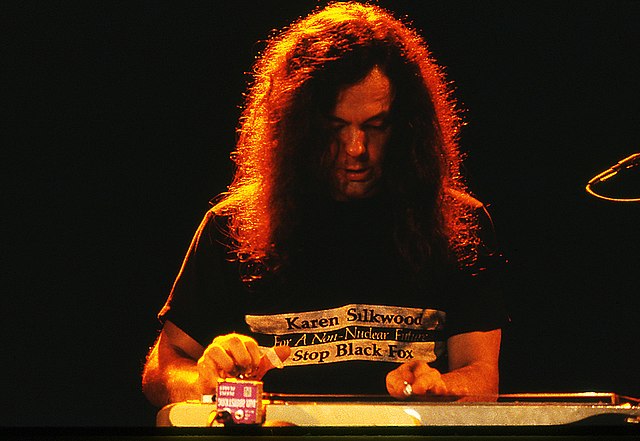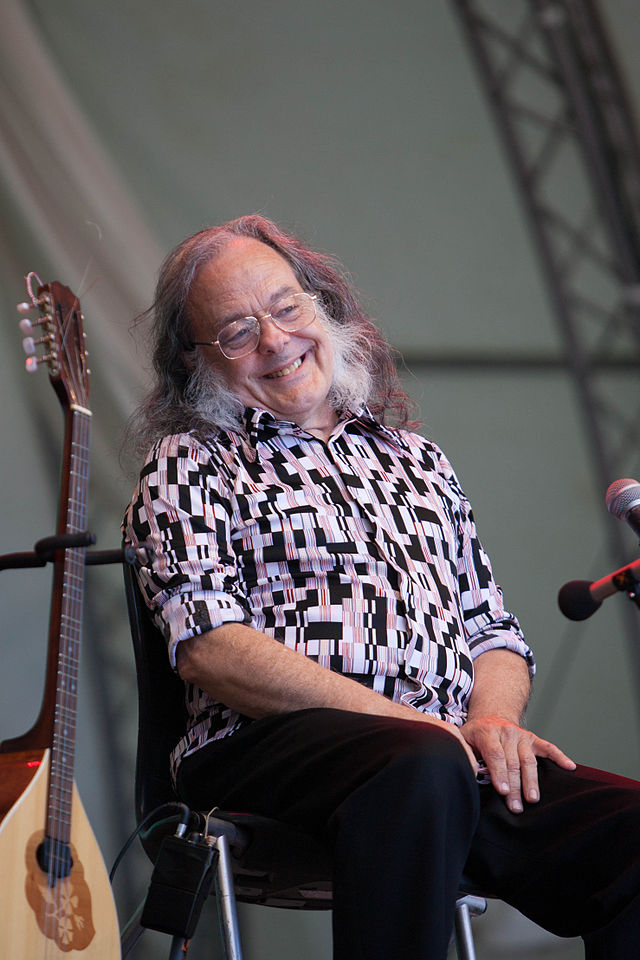David Lindley, a legendary collaborator on iconic recordings by artists like Jackson Browne, Linda Ronstadt, Rod Stewart, and many others, was an uncommon Los Angeles session guitarist who achieved success in his own right. He passed away on Friday. He was 78.
On his website, news of his passing was posted. Although he was said to have been fighting kidney problems, pneumonia, influenza, and other illnesses, the announcement did not specify where he died or list a cause of death.
Mr. Lindley rose to prominence as one of Los Angeles’ most sought-after sidemen in the 1970s thanks to his astounding mastery of virtually any instrument with strings. He added depth and richness to recordings by legends like Bob Dylan, Dolly Parton, Warren Zevon, Ry Cooder, and Iggy Pop by fusing searing slide guitar work with international stylings on instruments from all over the globe.
He wasn’t just a secondary character, though. Graham Nash described Mr. Lindley as “one of the most talented musicians there has ever been” on Instagram following his passing. (Mr. Lindley toured with Mr. Nash and David Crosby in the 1970s.) Truly, he was an artist’s musician.
Mr. Lindley’s “unique sound and style gave him away in one note,” as Peter Frampton put it on Twitter.
Mr. Lindley, who was known for his blizzard of curly brown hair and an ironic smirk, first made his mark in the late 1960s with the band Kaleidoscope, whose Middle East-inflected acid-pop albums, like “Side Trips” (1967) and “A Beacon From Mars” (1968), have become collector’s items among the cognoscenti.
With “El Rayo-X,” a party record that blended rock, blues, reggae, Zydeco, and Middle Eastern music, he started a solo career in 1981. It also featured a memorable, snarling cover of K.C. Douglas’s “Mercury Blues.”
By that time in his career, Mr. Lindley was already well-respected among the rock elite for giving the breezy California soft-rock that was drifting from the canyons of Los Angeles in the 1970s an earthiness and a worldly flair.
He is best known for his work with Mr. Browne, with whom he toured and acted as a featured performer on every Browne album from “For Everyman” (1973) to “Hold Out” (1980). His inventive fretwork was a cornerstone of many of Mr. Browne’s biggest hits, including the smash single “Running on Empty,” on which Mr. Lindley’s plaintive yet soaring lap steel guitar work helped capture both the exhaustion and the exhilaration of life on the road, as expressed in Mr. Browne’s lyrics.

Mr. Lindley’s guitar and fiddle could also be heard on landmark pop albums like Ms. Ronstadt’s “Heart Like a Wheel” (1974), which included the No. 1 single “You’re No Good,” and Rod Stewart’s “A Night on the Town” (1976), highlighted by the chart-topping single “Tonight’s the Night (Gonna Be Alright).”
Mr. Lindley had “no idea” how many instruments he could perform, he told Acoustic Guitar magazine in 2000. He was constantly seeking out new sounds and textures. But over the course of his career, he demonstrated a talent for drawing feeling from a variety of instruments, including the Indian tanpura, the Middle Eastern oud, and the Turkish saz, in addition to the violin, mandolin, banjo, dulcimer, and autoharp.
He avoided the epic hedonism of the time and maintained a low-key presence both onstage and off, despite being at the epicenter of the Los Angeles music firmament.
In a 2013 interview, Mr. Lindley claimed, “I’m kind of a social misfit when it comes to after-show parties, so I typically went back to the hotel. “You understand what I mean when I say there’s risk at those after-show parties? I was unable to accomplish that. Additionally, I had no real notion how to mingle or carry out any of this.
One of the five offspring of John Lindley, a lawyer, and Margaret (Wells) Lindley, David Perry Lindley was born on March 21, 1944, in Los Angeles. His father, a music enthusiast, filled the house with sounds from all over the world while he was growing up, including masters of the Indian sitar and the Greek bouzouki. San Marino, California, is a wealthy community close to Pasadena.

By the age of six, David had developed an obsession with all kinds of stringed instruments as a result of these inspirations. “I even opened up the upright piano in the playhouse out in back of my parents’ house to get at the strings,” he recalled in a 2008 interview with the musician Ben Harper for the magazine Fretboard Journal.
Download The Radiant App To Start Watching!
Web: Watch Now
LGTV™: Download
ROKU™: Download
XBox™: Download
Samsung TV™: Download
Amazon Fire TV™: Download
Android TV™: Download

